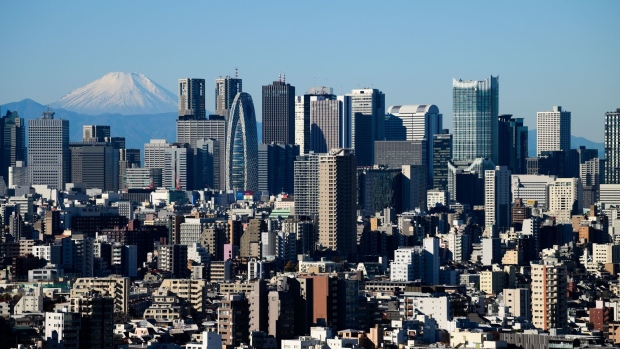Mar 13, 2024
BOJ Is Said to Mull Axing ETF Buys, Continuing Bond Purchases
, Bloomberg News

(Bloomberg) -- Bank of Japan officials are considering scrapping the buying of exchange-traded funds, a measure introduced in 2010, provided the central bank’s inflation target comes into sight, according to people familiar with the matter.
The officials see little need to keep buying ETFs to limit risk premiums in a market that recently hit a record high, according to the people.
While the bank may ditch its backstopping of the equity market, it is likely to remain committed to keeping the bond market stable and to intervene in the event of sharp yield rises, the people added.
The BOJ bought ETFs only three times last year and signs of its reluctance to buy more became clearer this week after a sharp drop in stocks. The BOJ stayed out of the market Monday in a departure from its usual playbook of buying ETFs when equities fall 2% or more in the morning session.
Read more: BOJ Refrains From ETF Buying, Stokes Policy Move Speculation
The BOJ is the only major central bank that buys stock funds as part of monetary easing to achieve an inflation target. The measure has long been criticized by traders and analysts for distorting market prices and limiting shareholder oversight of corporate governance.
Through its purchases it has become the biggest single holder of Japanese stocks. Any further buying was likely to face further scrutiny by investors given gains in the Nikkei 225 stock index this year.
The market is likely already used to the central bank refraining from buying, the people said.
BOJ officials are edging closer to raising interest rates and will decide whether to move this month at next week’s policy meeting, with the outcome currently too close to call, people familiar with the matter told Bloomberg earlier this week.
The central bank is trying to achieve stable inflation with wage growth that supports the economy. While price gains have surpassed the BOJ’s 2% target, the bank has argued it needs to see more evidence of stronger pay that can support a positive inflation cycle before paring back stimulus.
The bank started buying the funds in 2010 when the Nikkei was around 10,000, compared with an index close of 38,696 Wednesday.
The market value of its holdings is estimated to be around ¥70 trillion ($474 billion) last month, almost the same size as the national tax revenues.
Read More: What Will the BOJ Do With Its $475 Billion ETF Hoard?: QuickTake
©2024 Bloomberg L.P.





